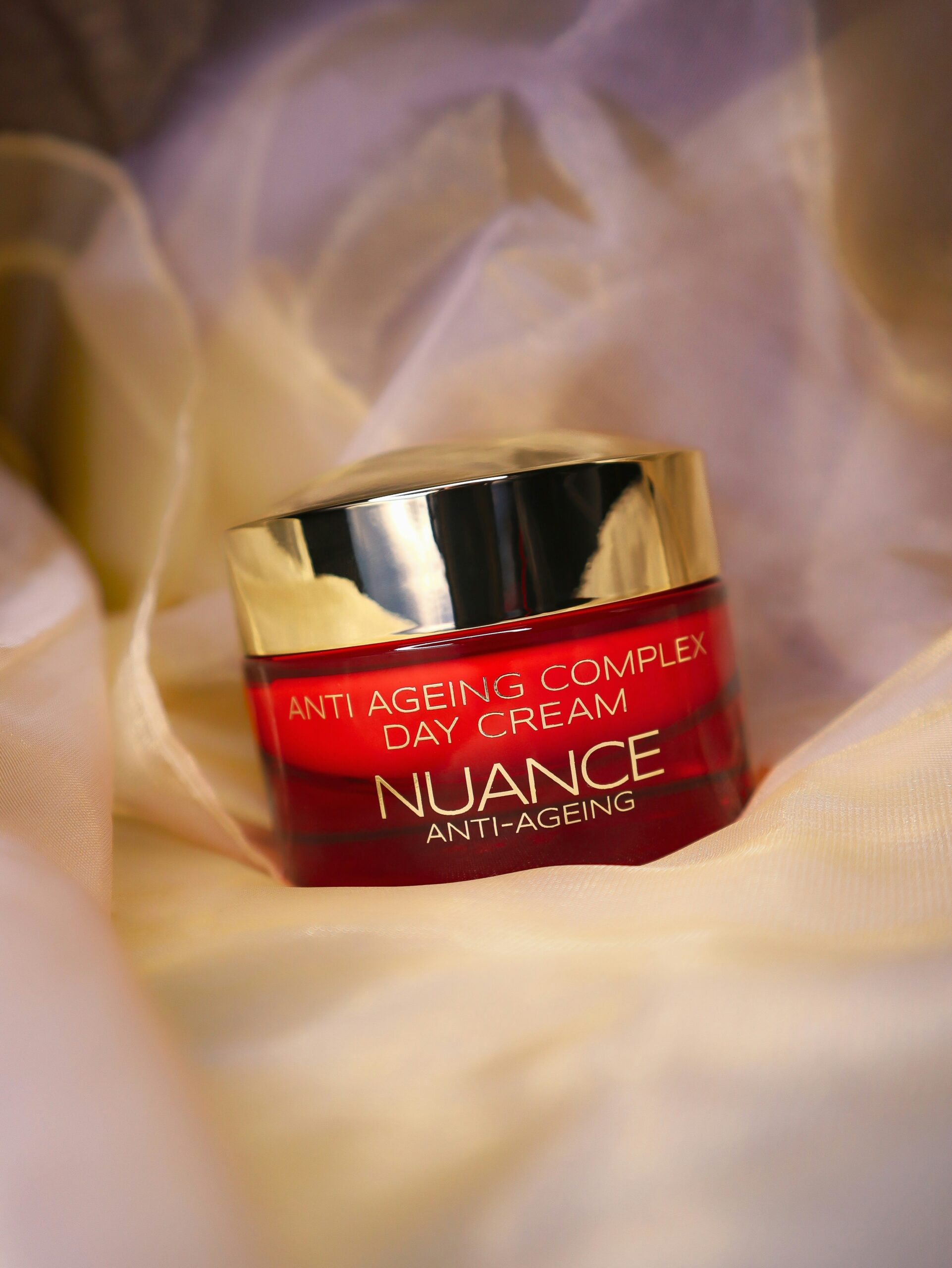Understanding the Aging Process
The aging process of the skin is a complex biological phenomenon influenced by both intrinsic and extrinsic factors. Intrinsically, the natural decline in collagen production, elastin, and hyaluronic acid plays a significant role in the skin’s aging characteristics. Collagen, a protein that provides structure and firmness, diminishes with age, leading to wrinkles and sagging. Elastin is responsible for skin’s elasticity, allowing it to return to its original shape after stretching; its reduction causes the skin to become less resilient over time. Likewise, hyaluronic acid, which retains moisture, plummets in levels as one ages, contributing to dryness and a loss of plumpness in the skin.
Extrinsically, environmental factors can speed up the aging process, dramatically affecting skin texture and appearance. Prolonged exposure to ultraviolet (UV) radiation from the sun leads to photodamage, which manifests as discoloration, fine lines, and an increased risk of skin cancers. The cumulative effects of daily UV exposure can result in the breakdown of collagen fibers and exacerbate the loss of elasticity. Additionally, pollution and environmental toxins are increasingly recognized as contributors to skin aging. These external aggressors can generate free radicals, leading to oxidative stress that damages skin cells and promotes premature aging.
Understanding these biological and environmental dynamics illuminates the need for effective anti-aging skincare. Recognizing the mechanisms behind skin aging allows individuals to adopt targeted skincare strategies. By employing anti-aging products that promote collagen synthesis, assist in moisture retention, and offer protection against external factors, one can significantly improve the skin’s overall health and appearance. This foundational knowledge is crucial for anyone seeking to enhance their skincare regimen as they navigate the aging process.
Essential Ingredients for Anti-Aging
When it comes to combating the signs of aging, certain ingredients have gained notable recognition for their effectiveness. Among these, retinoids are perhaps the most celebrated. Derived from Vitamin A, retinoids promote cell turnover and boost collagen production, leading to reduced fine lines and improved skin texture. It is advisable to start with a lower concentration to allow the skin to adjust, applying it at night to avoid photosensitivity.
Another essential ingredient is peptides. These short chains of amino acids are crucial in signaling the skin to produce more collagen and elastin. Peptides can help in improving firmness and reducing the appearance of wrinkles. Products containing peptides can be integrated into daily skincare routines, often found in serums and moisturizers, providing a good balance of hydration and anti-aging benefits.
Antioxidants also play a critical role in an anti-aging skincare regimen. They protect the skin from oxidative stress and free radical damage caused by environmental factors like pollution and UV radiation. Vitamin C is a powerful antioxidant that not only brightens the skin but also promotes collagen synthesis. Incorporating Vitamin C serums in the morning routine can yield impressive results.
Lastly, hyaluronic acid is renowned for its profound hydrating properties. This humectant attracts moisture to the skin, resulting in a plump and youthful appearance. It is suitable for all skin types and can be found in various product forms, including serums and creams. Regular use of products with hyaluronic acid can significantly diminish the visibility of fine lines and enhance the skin’s overall texture, providing a youthful glow.
Daily Skincare Routine for Youthful Skin
Establishing a comprehensive daily skincare routine plays a crucial role in maintaining youthful skin and mitigating the signs of aging. The foundation of such a regimen begins with cleansing, which is essential for removing dirt, makeup, and impurities that accumulate throughout the day. Selecting a gentle cleanser suited to one’s skin type is key; a hydrating formula is recommended for dry skin, while a foaming cleanser may benefit oily skin types. Cleansing should ideally occur both in the morning and at night to ensure freshness and proper skin health.
Following cleansing, exfoliation is an important step that helps to remove dead skin cells, promoting cell turnover. Depending on one’s skin sensitivity, exfoliating two to three times a week with either physical or chemical exfoliants can reveal brighter, smoother skin. Gentle products containing alpha-hydroxy acids (AHAs) or beta-hydroxy acids (BHAs) are particularly effective for enhancing skin texture and elasticity.
Moisturizing is the next critical component in maintaining youthful skin. A hydrating moisturizer should be applied every morning and evening. Ingredients such as hyaluronic acid and glycerin help to retain moisture, plumping the skin and reducing the appearance of fine lines. Additionally, incorporating a serum with antioxidants, such as vitamin C, can provide additional protection against environmental damage while enhancing overall skin vitality.
Lastly, sun protection is non-negotiable in an effective anti-aging regimen. Applying a broad-spectrum sunscreen with an SPF of at least 30 every morning can significantly reduce the risk of premature skin aging caused by sun exposure. This protective layer should be applied even on cloudy days or when indoors, as harmful UV rays can penetrate through windows. To maximize the effectiveness of your skincare routine, layering products correctly and allowing each layer to absorb fully before applying the next is recommended. By adhering to this daily skincare routine, one can effectively target aging skin and promote a more vibrant, youthful appearance.
Lifestyle Choices Impacting Skin Aging
The condition and appearance of our skin are profoundly influenced by various lifestyle choices. These decisions can significantly contribute to the aging process, thereby affecting skin health and vitality. One of the most crucial factors is diet. A well-balanced diet, rich in antioxidants, vitamins, and healthy fats, can enhance the skin’s elasticity and moisture levels. Foods such as berries, nuts, fish, and leafy greens are known to combat oxidative stress, promoting a more youthful complexion. Conversely, a diet high in processed sugars and unhealthy fats can accelerate skin aging, leading to wrinkles and dullness.
Hydration is another vital aspect of maintaining youthful skin. The human body is composed largely of water, and adequate hydration ensures that the skin retains moisture, appearing plump and radiant. It is generally recommended to consume sufficient water daily, ideally around eight glasses or more, depending on individual needs and activity levels. Additionally, incorporating hydrating foods, such as cucumbers and watermelon, can further support skin hydration and overall health.
Regular physical activity is equally important for promoting youthful skin. Exercise boosts blood circulation, delivering essential nutrients to skin cells while removing toxins. Moreover, physical activity can stimulate collagen production, helping to maintain skin structure and firmness. Engaging in moderate exercise consistently can lead to significant benefits for skin vitality and resilience against the signs of aging.
Lastly, quality sleep should not be overlooked. Sleep is the body’s natural restorative phase, during which repair and regeneration take place. Insufficient sleep can lead to increased stress hormones, which in turn may result in skin issues such as acne and premature wrinkles. Aiming for seven to eight hours of uninterrupted, restful sleep can enhance skin repair processes, promoting a more youthful appearance over time. By adopting these lifestyle choices, individuals can create a healthier foundation that supports both their overall well-being and skin health.

